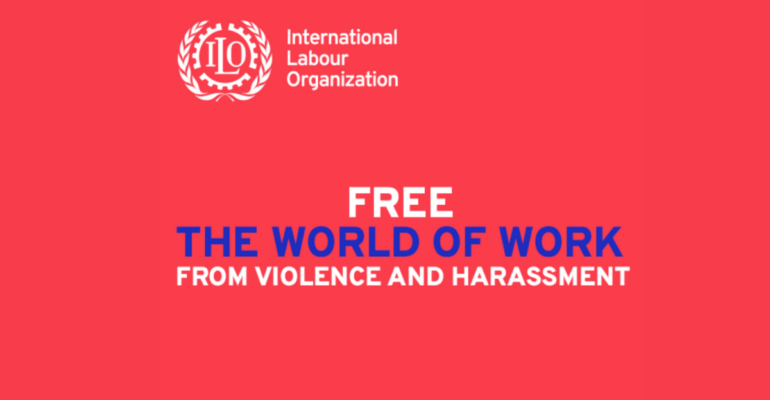Blog by Dr. Theresa Devasahayam, SI United Nations (UN) Representative, Bangkok.
In spite of growing numbers of women engaged in paid employment across the world, the workplace is not a gender equal domain. Violence and sexual harassment continue to be pervasive and gender discrimination is often the norm. These forms of inequality in the workplace are not acceptable and they should not be condoned. In a nutshell, there should be zero tolerance for violence and harassment since they are antithetical to rights to equal opportunity for all.
Women engaged in paid employment is a significant measure of their empowerment. For the workplace to be a truly gender equal space where women are empowered, every inequality, discrimination and disadvantage women face based on their gender identity has to be eradicated.
The launch of the ILO C190, the Violence and Harassment Convention, 2019 is a significant step towards achieving that goal. The Convention is crucial as it recognises the need to address the gender inequalities shoring up in the workplace.
On 8 September 2021, in my role as SI UN Representative for Bangkok, I represented SI at an international virtual meeting on the C190. A range of perspectives and viewpoints were discussed by the various speakers who included government dignitaries, UN representatives and experts.
A number of key points were raised: the moral and economic case for eradicating violence against women in the workplace to the extent that an equal playing field for women might be translated to higher productivity levels amongst them. A healthy and safe environment has its benefits for worker engagement and worker relations as well.
In this regard, a more gender equal workplace is synonymous to taking into account the interests and needs of women. A more gender equal workplace could be achieved through various means such as legislation, institutional frameworks and policies.
Because informal work tends to be disproportionately engaged in by women, the question of how to apply C190 to this group of workers should also be of concern. The needs of older women should also be given attention because of the growing numbers of women staying on in the workforce past the formal retirement age.
Governments have a critical role to play in upholding the rights of all workers regardless of their gender identity by raising awareness on the Convention. While the Convention is not binding, it does provide guidance on how the future of work should be shaped, especially should teleworking become the norm as the world slips into another year battered by the pandemic. In this case, the Convention is ever more important in protecting the rights of workers beyond the traditional workplace.
We are at the stage where there is a need to lobby governments to take C190 seriously. Employers and workers’ organisations and labour market institutions also play a crucial part in ensuring that women’s rights in the workplace are protected.
As paid work becomes central to women’s everyday lives, C190 ensures that women are not victimised but rather that their rights to dignity and mutual respect are recognised.
It is the collective push coming from NGOs, such as SI, that will make a significant difference in shaping the minds of policymakers and employers and keeping institutions accountable.
Advocating C190 is synonymous with fighting against patriarchy – a problem which continues to plague the workplace seen by the different levels of exploitation, harassment and inequality felt by women as a collective. Thus, NGO activists, through the national processes of consultation, have a critical role to play in changing the narrative and, in turn the mindset of governments, employers and society.
(Lead image courtesy of ILO).

